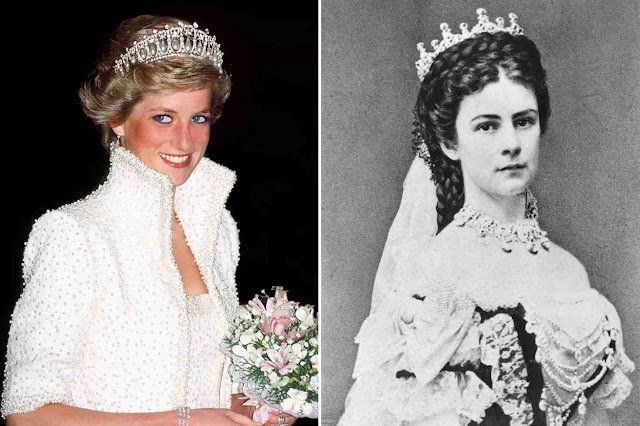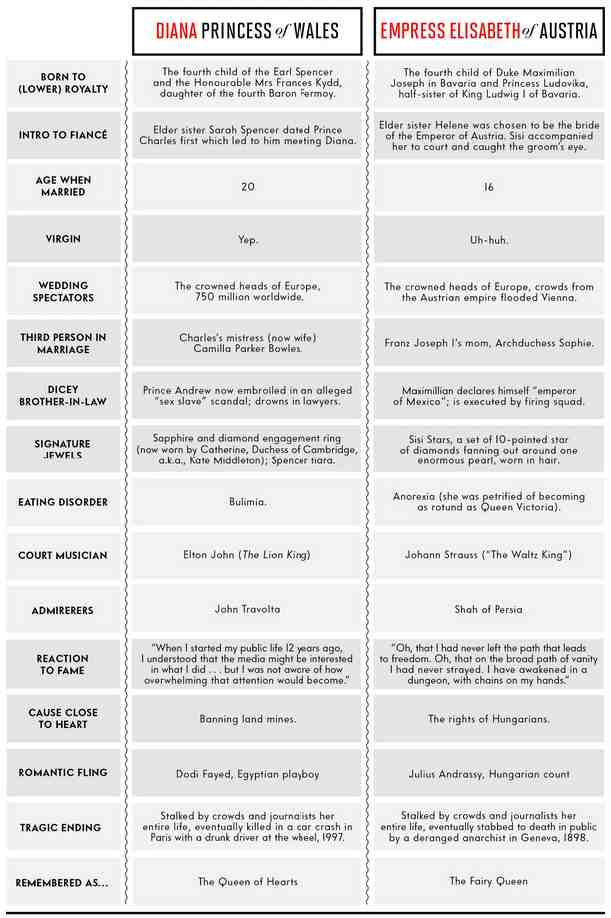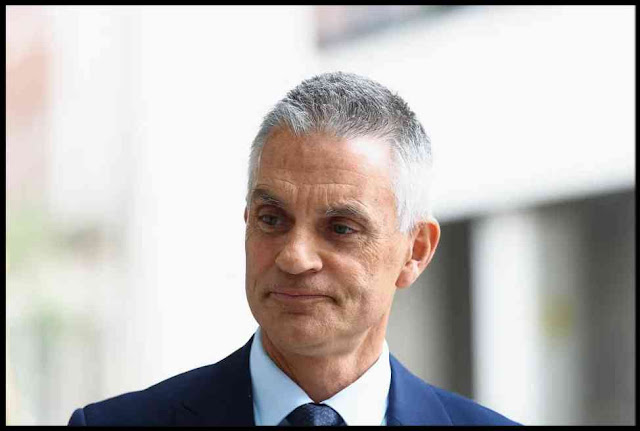The reason the BBC wants to bury Diana’s Panorama Interview has nothing to do with fake bank statements - it’s about protecting Charles
Martin Bashir Interviews Princess Diana for Panorama 20.11.95.
I don't expect the interview to remain up for long as Youtube has already placed this warning
Recently there was been quite a campaign about that famous
Panorama interview that Martin Bashir conducted with Princess Diana on 20
November 1995. As the day of the Queen’s death approaches and Charles becomes King
and Camilla ascend to the throne (assuming the people don’t rebel), determined
efforts are being made to rewrite the history of Charles divorce with Diana and
the fallout from that interview.
The BBC, whose film it is, might be expected to defend the
interview. However, ever loyal to the British Establishment, the BBC has rolled
over and issued
an abject apology because Bashir apparently used forged bank statements to gain
access to Diana via her brother Lord Spencer:
‘This led to a full-scale independent investigation
by Lord Dyson, published in 2021, after which the BBC officially apologised for
the way in which the interview had been obtained and the unacceptable standards
of its journalism.’
We can expect no better of the BBC than this fawning apology for
what was one of the best examples of BBC journalism. For ‘unacceptable’
journalism one need only look at its coverage of Palestine or its uncritical
coverage of US imperialism in the Pacific.
The interview by the Digital, Culture, Media and Sport
Committee of Tony Hall and John Birt, two former BBC Director Generals about
the Diana interview
Diana was not the first woman to enter the British Royal
Family and be repelled by its archaic traditions and protocols, to say nothing
of what she saw and experienced in this dysfunctional family. Nor was she the
first woman to reject the role that she was expected to play as the bearer of a
future king’s children.
That honour belongs to Princess Caroline of Brunswick who was Princess of Wales from 1795 to 1820
and Queen and wife of King George IV from 29 January 1820 until her death on 7
August 1821.
George IV
was already illegally married to Maria
Fitzherbert when he married Caroline. Theirs was not a happy marriage. In
1814, Caroline moved to Italy, where she was reputed to have taken a lover. In
1817 her only child Charlotte died in childbirth. Caroline heard the news second
hand as George had refused to write and tell her.
Caroline
refused George’s demand for a divorce and returned to Britain to assert her
position as queen. George attempted to divorce Caroline by introducing the Pains and Penalties Bill 1820 to
Parliament.
Caroline however
was very popular with the London ‘mob’ whilst George was not. They surrounded
the House of Lords every day; her coach was escorted by the cheering mob
whenever she had to appear there. The evidence against her was that during a
cruise she slept on deck in a tent with her servant Bergami and took her baths
with him in full view of the other servants. In Italy she was in the habit of
wearing dresses open to the waist!
Tim Davie, current BBC Director-General disowns Diana Interview
George lived a hugely extravagant life on the taxes collected
by Parliament, whereas Caroline appeared to live modestly. Satirists and
cartoonists published prints in support of Caroline and depicted George as
debauched and licentious. She received messages of support from all over the
country.
Caroline was a figurehead for the growing radical movement
that demanded political reform and opposed the unpopular George. By August,
Caroline had allied with radical campaigners such as William
Cobbett, and it was probably Cobbett who wrote these words of Caroline's:
If the highest
subject in the realm can be deprived of her rank and title—can be divorced,
dethroned and debased by an act of arbitrary power, in the form of a Bill
of Pains and Penalties—the constitutional liberty of the Kingdom will be
shaken to its very base; the rights of the nation will be only a scattered
wreck; and this once free people, like the meanest of slaves, must submit to
the lash of an insolent domination.
The day before the trial was due to start, an open letter
from Caroline to George, again probably written by Cobbett, was published
widely. In it, she decried the injustices against her, claimed she was the
victim of conspiracy and intrigue, accused George of heartlessness and cruelty,
and demanded a fair trial. The letter was seen as a challenge, not only to
George but to the government and the forces resisting reform.
After 52
days the Lords decided to drop it. George IV’s Coronation was to on 29 April
1821. Caroline asked the Prime Minister what dress to wear for the ceremony and
was told that she would not be taking part.
In
January 1820, George became King and Caroline was nominally queen. However when
Caroline arrived at the door of Westminster Abbey demanding to be admitted she
was refused entrance. She shouted “The Queen…Open” and the pages opened the
door. “I am the Queen of England,”
she shouted and an official roared at the pages “Do your duty…shut the door” and the door was slammed in her face.
Caroline died 19 days later and was
buried in Brunswick, and on her coffin was inscribed… ‘CAROLINE THE INJURED QUEEN OF ENGLAND’.
See Queen Caroline of Brunswick, wife of George IV
Another
unhappy princess was Empress Elisabeth of Austria,
(Sisi) consort of Emperor Franz Josef. Elisabeth was a 19th-century Diana: both
were beautiful and charismatic, had unhappy royal marriages and met violent
deaths.
Both
married very young after what were portrayed as fairytale romances. Both felt
ill at ease in their husband’s families – especially Elisabeth who found the
rigid protocol of the Austrian court difficult after her informal upbringing –
and disliked many of her royal duties.
Both
women shared a love of fashion and beauty. Elisabeth’s obsession with keeping
slim led to an extreme diet regime which some modern commentators have
interpreted as a form of eating disorder, akin to Diana’s bulimia.
Both were also famous for the causes they espoused.
Elisabeth was a strong advocate for the rights of her Hungarian subjects. Diana
was famous for the campaign to ban landmines and also her association with gay
people and open espousal of the victims of aids.
See The
Little-Known Empress with Striking Similarities to Princess Diana
See Elisabeth
of Austria - the Hapsburg Princess Diana
ABC - Allegations that Special Forces
killed the princess surfaced during a court-martial.
There have been repeated suggestions that Diana was murdered
by the British state on 31 August 1997. However proving this has always been
difficult since British intelligence are rather coy about what they do!
Certainly the father of Diana’s boyfriend, Dodi, Mohamed al-Fayed believed
that she and his son were murdered.
However what is not in dispute is that the Royal Family were
not exactly saddened by what had happened. Diana had been a running sore and
embarrassment while she was alive. She cast a shadow over the future king
Charles and his adulterous relationship with Camilla.
3 in a marriage was ‘a bit
crowded’
Diana had openly embraced causes such as landmines and Aids
that the royals steered clear of but then there was that interview with Martin
Bashir and the accusation that there had been 3 in what was a ‘crowded’
marriage.
The reaction of the Queen to Diana’s death was to carry on as
normal. The Royal Standard could not be flown at half mast at Buckingham Palace
because the Queen was not in residence. Their reaction was very much out of
cync with the popular mood and we had the spectacle of the likes of the Mail and Express, who saw popular support for the monarchy draining away,
beseeching the monarchy to make it clear that they weren’t celebrating Diana’s
demise (at least not openly).
The Queen had apparently been initially opposed to the use of
an aircraft of the Queen's Flight to bring Diana's body home, much to the
alleged frustration of her advisers. Her deputy private secretary, Sir Robin
Janvrin, is said to have asked
the Queen: 'What would you rather, Ma'am,
that she came back in a Harrods van?' (Harrods was then owned by Al-Fayed.)
Journalists were also briefed that the Prince of Wales had
decisively countermanded the original decision for Diana to remain in a public
mortuary in Fulham, West London. Instead, according to his aides, he'd ordered
that the princess should rest in the Chapel Royal.
But Andrew Morton, whose 1992 book Diana: Her
True Story began the whole drama, (revealing in a later version that Diana had been the main source for the
book) wrote:
public anger was also directed at the Royal Family, not only for their
slow and muted response to the tragedy but also for their indifference to her
during her lifetime. Downing Street officials feared that rioting could break
out.
Courtiers tried in vain to convince the Queen and Prince Philip to recognise the increasingly precarious situation and
fly back from Balmoral.
After the Queen had realised the public mood
she travelled back to London
a day earlier than planned and, for the first time in history, allowed the
Union Flag to fly at half-mast at the palace.
As a senior aide explained:
At Balmoral, she hadn't taken it in. You never know what it is like
until you are actually there.
All the remarks and people hugging each other, sobbing — the whole
nation seemed to have gone bananas. The Queen and Prince Philip felt utterly
bewildered.
Nor did they fully appreciate the impact of Diana's death on the
national psyche. Along with her family, the Queen was mourning the flawed
individual she knew rather than the saintly icon.
In only the second
special televised address of her reign and
‘With a nod to the criticism of herself and
her family, the Queen conceded: 'I for
one believe there are lessons to be drawn from her life and from the
extraordinary and moving reaction to her death.'
It cannot be denied, however, that she'd been
slow to change direction when it became clear she was out of step with the
nation.
What then explains the public reaction to Diana, who was
hardly a radical figure? Compare the reaction to her death to that of Prince
Philip, the husband of Elizabeth. When he died last year the BBC was flooded
with complaints because it had decided to stage the same tributes to him on
every TV channel!
Viewers switched off their TVs in droves after broadcasters aired
blanket coverage of Prince Philip’s death, audience figures revealed on
Saturday, and the BBC received so many complaints it opened a dedicated
complaints form on its website.
Phillip was hardly a figure of adoration. I suspect that when
the Queen dies that the BBC will go in for more overkill and thoroughly
alienate the one-third of the British people who aren’t take in by all the
nonsense about the Royal family.
Why then did Diana and before her Caroline and Elisabeth of
Austria attract such adoring crowds and mass popular affection? Why did so many
people identify with Diana?
To understand this one has to understand the role of the
monarchy itself. For the ruling class it has immense benefits in symbolising in
their person the British state itself. It acts as a unifying force. However rich
or poor you are you can identify with the monarch.
However the monarchy, by its very nature, must retain its
distance from the masses if it is to command their respect. As Walter Bagehot, wrote
in The English Constitution (1867) ‘mystery
is its life. We must not let in daylight upon magic.’
So people are encouraged to identify with the royals at the
same time as the monarchy must keep its distance from them. And in these days
when the popular press go over every aspect of their lives it is difficult to
retain much mystery. For most people the royals are aloof and remote. In the case of Andrew Windsor there
is mass loathing and contempt for what is reputed to be the Queen’s favourite
son!
In the case of Diana, as her own personal situation worsened
with the breakdown of relations with her husband she increasingly took on a
public persona of her own. The sheer volume of press coverage of her private
life, a coverage that she both detested and courted, increased peoples’
identification with her as the embodiment of what they would like to be. When it
was revealed that Charles had been carrying on an adulterous relationship with
Camilla when Diana was supposed to be faithful (to the extent of having been
tested for her virginity prior to marriage) then many women in particular
identified with her.
It was all very well Charles telling
Diana that ‘I refuse to be the only
Prince of Wales who never had a mistress.’ but the public was more likely
to sympathise with the wronged woman. In fact Charles seems to have had a string
of mistresses. Spare Rib in the week
of their marriage carried
the headline ‘Don’t Do it Di'!
In some ways the Royal Family, which is the icing on the cake
of a very ugly class riven society, functions as religion, a source of
consolation or in Marx’s words the ‘soul
of a souless world.’ People are encouraged to identify with what is a protocol
riven, parasitic bunch of sociopaths and to imagine that they have something in
common. When someone like Caroline or Diana comes along they can create a mass
following because people see in them a reflection of themselves.
That is another reason why the Establishment and the BBC want
to bury the Panorama interview. According to John Birt, the former BBC
Director-General, it was ‘an absolute
horror story’. If Charles is to gain the support of his ‘subjects’ then it
is necessary that people are taught to forget Diana and pretend that that interview
was not what it seemed at the time. Diana had been tricked into it and her
paranoia fed by tales of malfeasance by the rest of the royals.
The fact is though that Diana never expressed any regrets
over the interview, quite the contrary. She made it clear that she approved of
the fact that she had been allowed at last to tell her side of a marriage in
which she had been expected to produce an heir and a spare but otherwise to
keep quiet.
So her eldest son and second in line to the throne, Prince
William, comes out with the statement that the BBC had used ‘deceitful
behaviour’ to obtain the interview and that the 1995 Panorama
interview led to Diana's “fear, paranoia
and isolation”.
Martin Bashir attacked by the fawning, forelock tugging MPs with their synthetic outrage at his 'methods'
Interview
Digital, Culture, Media and Sport
Committee 15 June 2021
Chair: Without
the benefit of hindsight, but considering what you knew at the time, why did
you report to the BBC board of governors that you believed that Mr Bashir was
an honest and honourable man?
Lord Hall: Uppermost
in our minds then was: had the interview with Princess Diana, the decision that
she made to be interviewed, been done fairly or not? That was absolutely
uppermost in our minds. The first investigation we did before Christmas under Tim Gardam talked to all the people concerned
and produced a letter where she said very clearly that she had been shown no
documents by Martin Bashir, she was not made aware of anything by Martin Bashir
that she didn’t already know and she had no regrets, underlined, by the
interview. It is quite interesting that Lord Dyson himself says that an
interview of some sort would probably have taken place anyway. At that point in
our inquiries, in our investigations with Tim Gardam, we came to an end that
there was no case to answer.
For oral interview see
here
To download the Diana
interview click here















You are an exceptional man, Tony, but your time on this Earth is finite. Please don't waste any more of it writing about worthless, overprivileged, degenerate aristocrats.
ReplyDelete